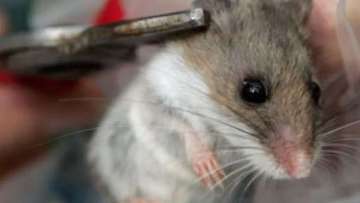Several genetically engineered mice spent 33 days abroad the International Space Station (ISS) and surprisingly retained more muscle and bone density than control mice that had not been tempered.
"These findings," the researchers wrote in their paper, "have implications for therapeutic strategies to combat the concomitant muscle and bone loss occurring in people afflicted with disuse atrophy on Earth as well as in astronauts in space, especially during prolonged missions."
The target of engineering was a protein called myostatin, which plays a significant role in regulating muscle growth. Mutations in the myostatin gene can produce something called myostatin-related muscle hypertrophy, resulting in mega beefcake muscling.
As the researchers wrote in their paper, "these data show that the enhanced muscling due to loss of myostatin is largely (if not entirely) maintained following exposure to microgravity."
The results get even more interesting with the ACVR2B/Fc mice. During a 22-day period aboard the ISS, the muscle mass of these mice increased by 27 percent, and their body fat levels went down. Meanwhile, the muscle mass of the ground ACVR2B/Fc mice only increased by 18 percent.
The research has been published in the Proceedings of the National Academy of Sciences.

